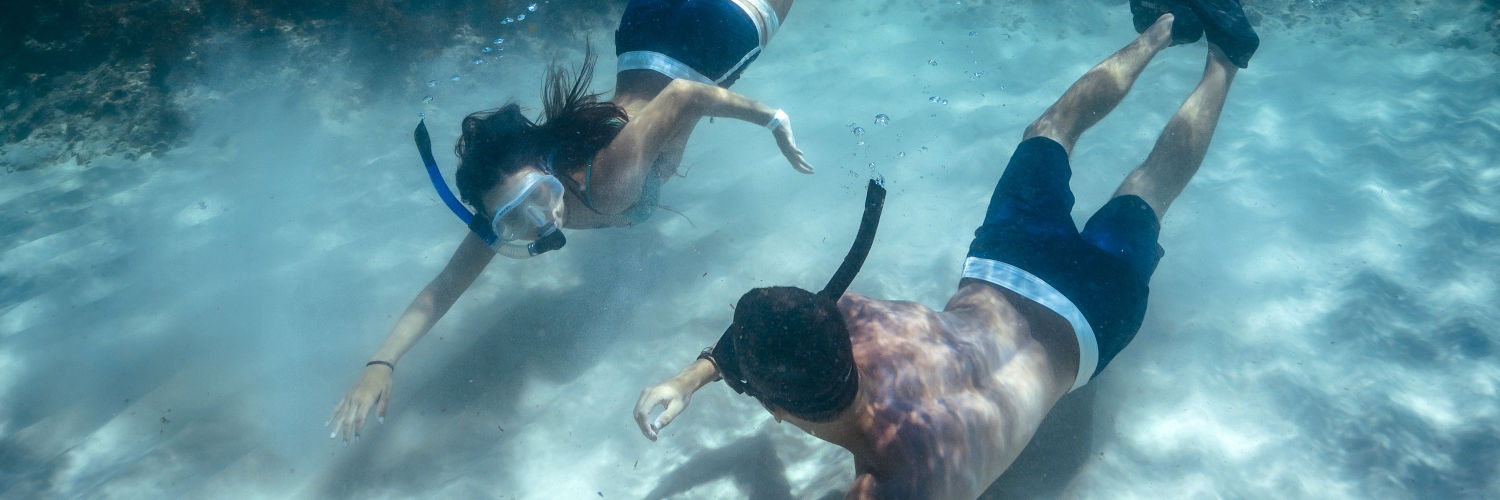Snorkeling With Epilepsy: Understanding Risks and Precautions for Safe Diving
Epilepsy makes it tough to do water sports like snorkeling. Seizures in water can lead to big problems like drowning. So, people with seizures must think a lot about risks and do things to be safe, like having a buddy who knows what to do. But, if they plan well and stay safe, many people with seizures can have fun snorkeling and doing more water sports.
Understanding Epilepsy and Seizures
Epilepsy is a chronic disorder marked by recurrent, unprovoked seizures caused by abnormal brain activity.
Types and Symptoms of Seizures
Generalized Seizures: These affect both sides of the brain simultaneously and can manifest as absence seizures (brief lapses in consciousness) or tonic-clonic seizures (convulsions with muscle rigidity and jerking).
Focal Seizures: Starting in one part of the brain, they can show up with or without passing out, and signs can include abrupt mood swings or strange feelings.
Diagnosing Epilepsy
Diagnosis typically involves a neurological examination and tests like an EEG to monitor electrical activity in the brain. A doctor may prescribe medication based on the seizure type, and ongoing assessment by healthcare professionals is crucial for management.
Risks of Snorkeling with Epilepsy
It’s important to know the dangers of snorkeling for people with epilepsy to stay safe. The main danger is having a seizure and then passing out underwater and drowning.
Water-Related Risks for Individuals with Epilepsy
- Seizures: Unexpected loss of consciousness underwater can occur.
- Drowning: The risk of drowning increases if a seizure occurs during snorkeling.
Considerations Before Snorkeling
- Fitness to dive: A medical evaluation to assess seizure control is necessary.
- Lifeguard Presence: Ensure a lifeguard is on duty in proximity to the snorkeling area.
Reducing Risks and Safety Measures
- Diving buddy: Swimming with someone who knows about you.
- Swimming abilities: Making sure you can swim well before snorkeling.
Treatment and Management of Epilepsy
Good epilepsy care includes medicine, life changes, and regular doctor visits. Drugs are important for controlling seizures and avoiding side effects. Physicians tailor drug therapy to the individual, as a single approach may not be universally applicable.
- Medication: Medication like valproate, carbamazepine, and lamotrigine.
- Rest and Sleep: Adequate sleep is crucial, as poor sleep can trigger nocturnal seizures.
- Emotion and Behavior: Ways to control stress can lessen how often seizures happen.
Consistent medical advice and monitoring are vital. While there is no cure for epilepsy, with proper treatment, individuals often lead active, fulfilling lives.
Lifestyle Considerations and Activities
Dealing with epilepsy means handling different parts of life. This includes doing daily things, like talking to friends, and handling feelings.
Daily Activities and Epilepsy
Individuals with epilepsy often need to take precautions during daily activities. For instance, driving might need a doctor’s okay and regular checks to make sure it’s safe. Likewise, things like walking on bumpy ground need thinking about to stop accidents.
Engaging in Physical Activities
Exercise is beneficial for those with epilepsy, improving both physical health and mood. Sports that require a helmet offer an extra layer of protection. Structured activities such as dance or the gym can be made safer with necessary adjustments and informing trainers about their condition.
Social and Psychological Aspects of Living with Epilepsy
Epilepsy can change friendships and jobs, needing talk and help from family. People need tools to handle thinking and feelings. Families with kids with epilepsy need special help.





